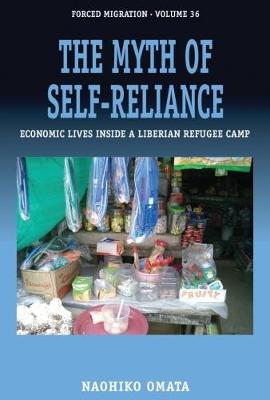
Stock image for illustration purposes only - book cover, edition or condition may vary.
The Myth of Self-Reliance: Economic Lives Inside a Liberian Refugee Camp
Naohiko Omata
€ 148.44
FREE Delivery in Ireland
Description for The Myth of Self-Reliance: Economic Lives Inside a Liberian Refugee Camp
Hardback. The Myth of Self-Reliance provides valuable insights into refugees' experiences of repatriation to Liberia after protracted exile and their responses to the ending of refugee status for remaining refugees in Ghana. Series: Forced Migration. Num Pages: 180 pages, 3 figures, 3 illustrations, 6 tables, 2 maps. BIC Classification: 1HFDH; 1HFDL; JFFD; JFFN. Category: (UP) Postgraduate, Research & Scholarly; (UU) Undergraduate. Dimension: 229 x 152. .
For many refugees, economic survival in refugee camps is extraordinarily difficult. Drawing on both qualitative and quantitative research conducted over several years, this volume challenges the reputation of a 'self-reliant' model given to Buduburam refugee camp in Ghana and sheds light on considerable economic inequality between refugee households. The Myth of Self-Reliance provides valuable insights into refugees' experiences of repatriation to Liberia after protracted exile and their responses to the ending of refugee status for remaining refugees in Ghana.
For many refugees, economic survival in refugee camps is extraordinarily difficult. Drawing on both qualitative and quantitative research conducted over several years, this volume challenges the reputation of a 'self-reliant' model given to Buduburam refugee camp in Ghana and sheds light on considerable economic inequality between refugee households. The Myth of Self-Reliance provides valuable insights into refugees' experiences of repatriation to Liberia after protracted exile and their responses to the ending of refugee status for remaining refugees in Ghana.
Product Details
Publisher
Berghahn Books
Format
Hardback
Publication date
2017
Series
Forced Migration
Condition
New
Number of Pages
194
Place of Publication
Oxford, United Kingdom
ISBN
9781785335648
SKU
V9781785335648
Shipping Time
Usually ships in 15 to 20 working days
Ref
99-15
About Naohiko Omata
Naohiko Omata is Senior Research Officer at the Refugee Studies Centre, University of Oxford. Based on extensive research in West Africa, Naohiko has published widely on refugee livelihoods, rights and repatriation including articles in the Journal of Refugee Studies, Journal of Ethnic and Migration Studies and Community Development Journal. Previously, he worked as a practitioner and consultant for UNDP, UNHCR and international and local NGOs in various Sub-Saharan African countries.
Reviews for The Myth of Self-Reliance: Economic Lives Inside a Liberian Refugee Camp
SHORTLISTED FOR THE 2018 BBC THINKING ALLOWED ETHNOGRAPHY AWARD Excellent in every respect... The work fills a major gap in the refugee studies literature, as there has been no previous book-length account of this particular refugee population or the topic under review (how refugees cope in the absence of humanitarian assistance). Unlike some anthropological accounts of refugee situations, the study is a delight to read, bereft of unnecessary theory and maintains a consistent focus on the refugees themselves. - Jeff Crisp, Refugee Studies Centre, University of Oxford This is a very clear and well written work that brings to life a complex set of conditions and relations within and beyond the refugee camp which are often blurred or over-simplified in ways that have severe consequences for refugees themselves... it provides much needed insights into the historical roots and complex contemporary manifestations of socio-economic differentiation affecting the lives and livelihoods of refugees both in the refugee camp and when faced with the dilemmas of repatriation. - Amanda Hammar, University of Copenhagen This is an engaging and carefully crafted book, which is detailed and includes refugees own voices and perspectives throughout, alongside quantitative analysis. It contributes to key debates, and is carefully referenced throughout. - Elena Fiddian-Qasmiyeh, University College London
